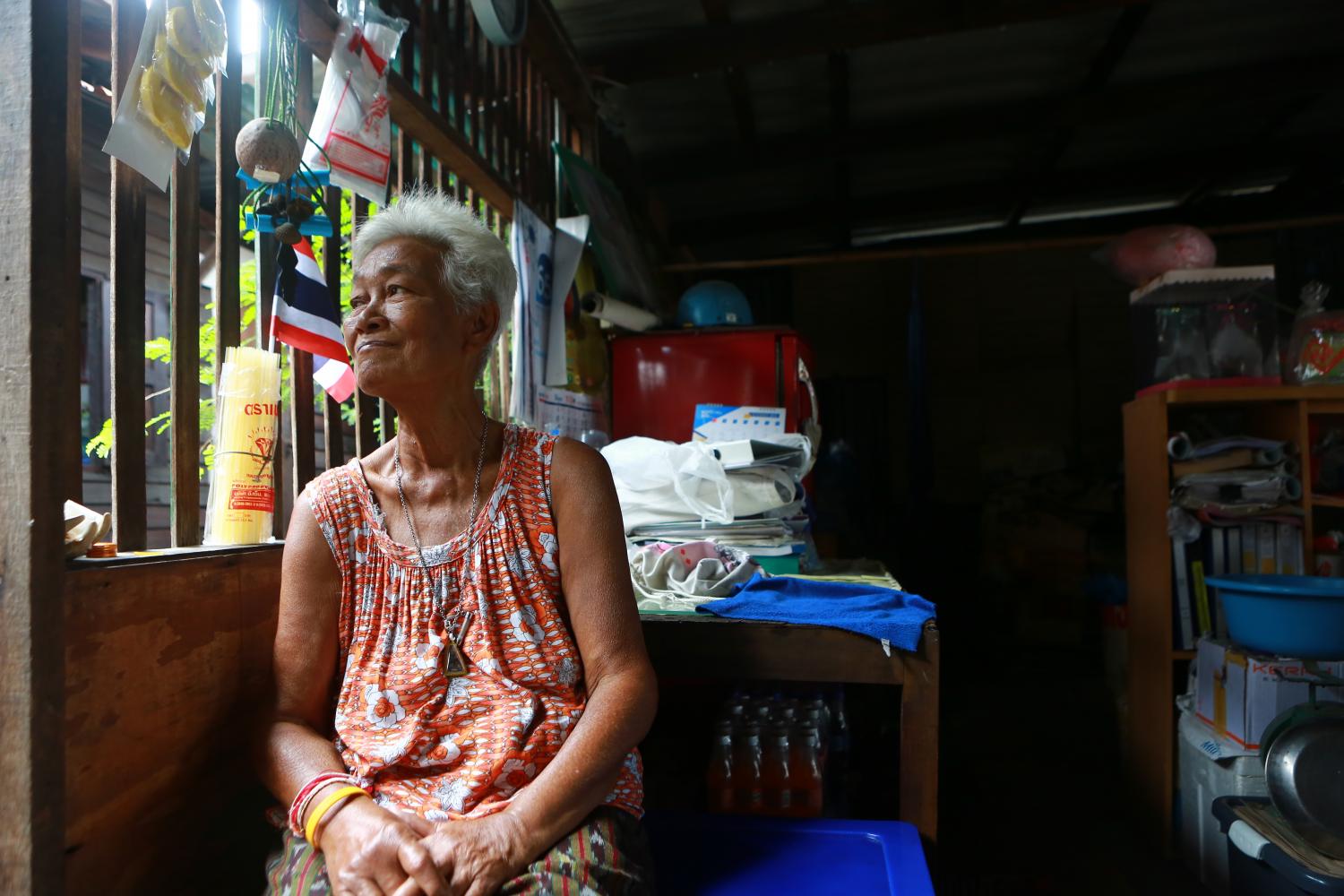
Older people face myriad challenges in any society, and Thailand is no exception. Amid the ongoing Covid-19 pandemic, the challenges are even more formidable.
Globally, the novel coronavirus has proven all the more dangerous for people with underlying conditions, ranging from diabetes and asthma to cardiac disease to cancer, with a significant number of deaths seen in the elderly.
With population ageing the demographic norm in many Asian countries, including Thailand, there are fears that an escalating outbreak could exact a heavy toll -- in terms of physical and psychosocial health, as well as economic wellbeing.
Currently, 12 million people, or 18% of Thailand's population -- almost one out of every five -- is aged over 60. One out of 10 is over 80. Almost two million older people are not in good physical health, with some 250,000 in extremely poor condition.
There are the elderly poor, many of whom live alone, lacking family and other socioeconomic support. Almost 90% of older people do not have a care-giver; they must take care of themselves. With minimal safety nets, their risks are obvious.
Then there are those living in long-term care facilities, such as nursing homes and rehabilitation centres. Their vulnerability to adverse outcomes and Covid-19 infection stems from their close proximity to others.
Ironically, while physical distancing and isolation to protect older people may be needed depending on the situation in the community, it's also important to be aware that such isolation may actually result in the deterioration of their mental, physical and spiritual wellbeing.
Regardless of whether older people live alone or are dependent on others for care and support, many of them could face barriers to obtaining accurate information, optimal food supplies, consistent medication, and other essentials during physical distancing or quarantine conditions.
There's another reality that many societies, including Thailand, are not willing to openly address.
Due to restrictions on their mobility, older people can be increasingly subject to abuse during an emergency situation, including but not limited to physical, psychological, sexual abuse, financial abuse or exploitation and neglect.
This can cause serious physical injuries and long-term psychological consequences, increased risk of nursing home placement, hospitalisation and even death. The number of actual cases of abuse of older people tends to be underestimated, as many of them are not reported.
Also, in Thailand, there are twice as many older women than men, adding a dimension of gender-based violence to elder abuse.
The Covid-19 crisis comes at a time when Thai society itself is in significant transition, moving quickly from a traditional, nuclear family-oriented pattern to a far more fluid and fragmented structure, contributed to by mass migration from the country's rural swaths to Bangkok and a handful of other urban centres -- with grandparents and children left in the countryside while parents work in the cities.
A key aspect of leaving no one behind is the continuum of practical and emotional support older people consistently need through families and other informal networks, or intergenerational support, as younger relatives take care of older ones all the more, thereby renewing the sense of family, and the solidarity that this can bring about.
Along with this, we need better safety nets for older people, only 4% of whom have income from their savings or assets, with their main source of income being their children. However, with rising unemployment and other damaging economic impacts of Covid-19 already being witnessed in Thailand and beyond, the situation for older people could be more tenuous than ever.
Social protection systems and measures should be put into place to address the issue of elder abuse over the course of the outbreak, just as greater attention is being paid at the present time to rising incidents of domestic violence under lockdowns and quarantine.
The pandemic is actually an opportunity for the government and citizens of Thailand, and indeed globally, to pause and take stock of how we can re-arrange our lives as individuals, as family units and as entire nations. This introspection should also help better ensure that the most vulnerable members of society are not left behind -- not only in the context of Covid-19, but going forward, under the vision of the Sustainable Development Goals.
Thai society likes to pride itself on respecting, even venerating its elders, symbolised by various traditions observed during Songkran.
This year's observances have been curtailed due to Covid-19. But we can still herald the new year by taking a new look at the realities experienced by our elders, through the lens of the present pandemic which has thrown so many realities into much sharper focus than ever -- and, as a result, working towards a genuinely better future for all.
Marcela Suazo is country director of UNFPA Thailand and representative of UNFPA Malaysia; Wassana Im-em is acting head of office, UNFPA Thailand.